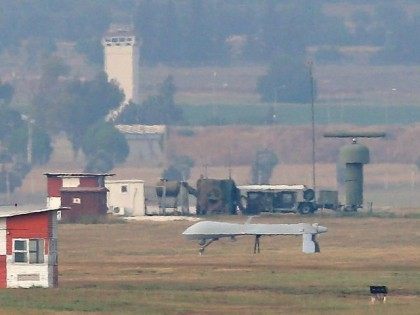PKK Formally Ends Truce with Turkey
The Kurdistan Workers’ Party (PKK) ended its ceasefire with Turkey on Thursday after President Recep Tayyip Erdoğan’s Justice and Development (AKP) Party swept parliamentary elections.
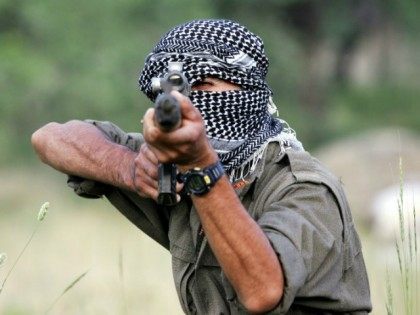
The Kurdistan Workers’ Party (PKK) ended its ceasefire with Turkey on Thursday after President Recep Tayyip Erdoğan’s Justice and Development (AKP) Party swept parliamentary elections.

Yazidi militias organized to fight the Islamic State in Sinjar, northern Iraq are protesting that the Kurdistan Workers’ Party (PKK), a Marxist terrorist group operating out of Syria and Turkey, have prevented them from launching a mission to recapture Sinjar City after the terrorists stormed the region in 2014.
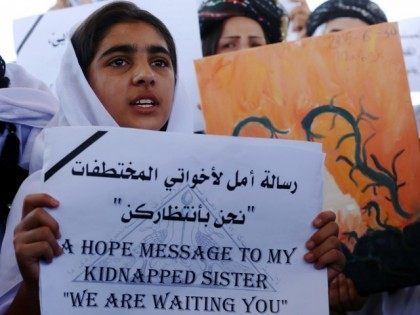
The Turkish government is looking to increase its military cooperation with the Kurdistan Regional Government (KRG) in Iraq, particularly in the fight against ISIS.
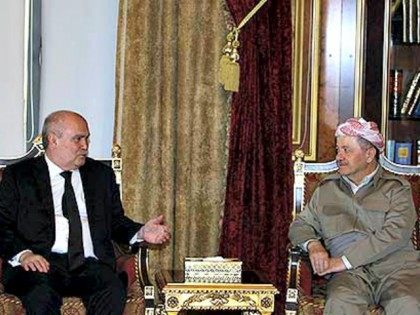
Contents: Erdogan’s party in Turkey wins landslide victory; How Turkey changed in five months
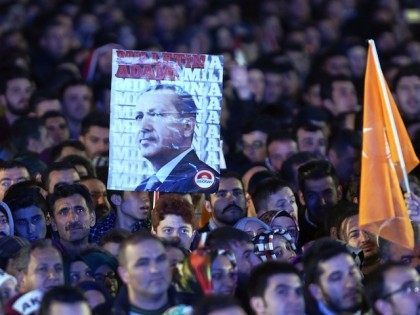
Turkish Prime Minister Ahmet Davutoglu has responded to accusations that his party has not made enough of an effort to eradicate the Islamic State (ISIS/ISIL) from Turkey by asking of his detractors, “Look at me, look at my face. Do I have the face of someone who would support ISIL?”
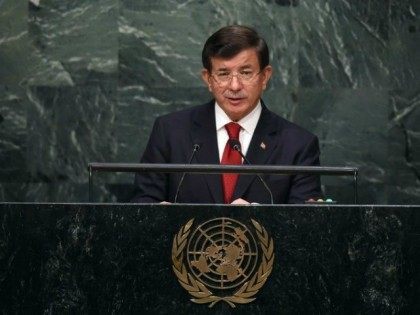
The United States is currently unsure if Kurdish People’s Protection Unit (YPG) fighters, who have reportedly received nearly 50 tons of ammunition funded by American taxpayers, will participate in the U.S. operation to retake Raqqa, the de facto Syrian capital of the Islamic State (ISIS/ISIL), according to the Pentagon.
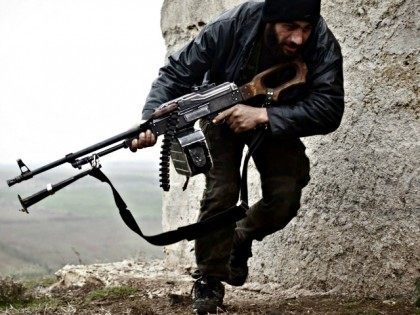
A dispute has arisen in Syria over the disposition of a fifty-ton ammunition shipment from the United States, supposedly intended for Syrian Arab rebel groups. The munitions were instead taken by the Kurdish YPG militia, according to both Arab and Kurdish commanders, although the Pentagon officially insists the shipment reached its intended recipients.
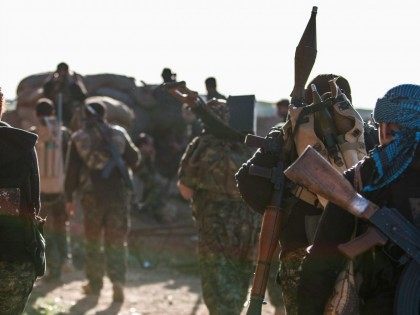
Turkish state-run media outlet Anadolu Agency is reporting that police have evidence the original target of the bombing of a Kurdish peace rally in Ankara on October 10 was the headquarters of the Kurd-friendly People’s Democratic Party (HDP).
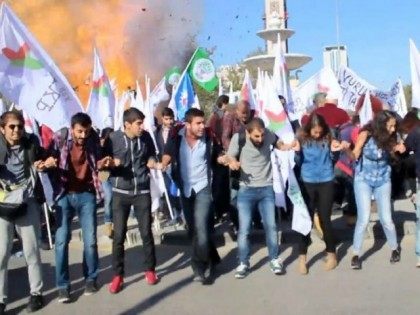
Turkey has arrested upwards of 1,000 more suspects linked to the Kurdish PKK than to the Islamic State (ISIS) or Al Qaeda since the July bombing of a meeting of Kurdish socialist youth in Suruç, despite declaring war on ISIS following that incident.
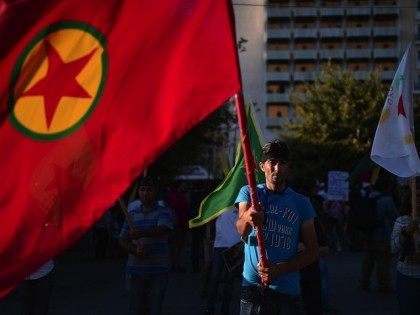
A Finnish journalist has been accused by pro-Turkish government media of being linked to the terrorist group Kurdistan Workers’ Party (PKK) after asking Turkey’s president, Recep Tayyip Erdogan, whether or not he is a dictator, as some have claimed.
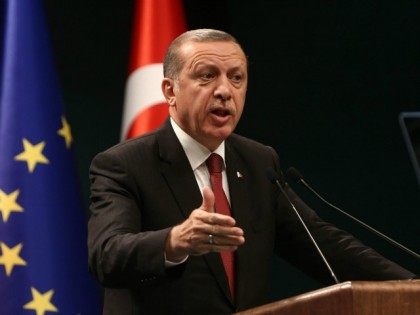
Turkey has grown increasingly vocal, and even belligerent, in criticizing the Kurds and U.S. military support for their cause in Syria and Iraq. The situation took a disturbing turn when Turkish Prime Minister Ahmet Davutoglu threatened to attack Kurdish fighters in Syria, if they are found to be passing American weapons back to Kurdish insurgents in Syria.
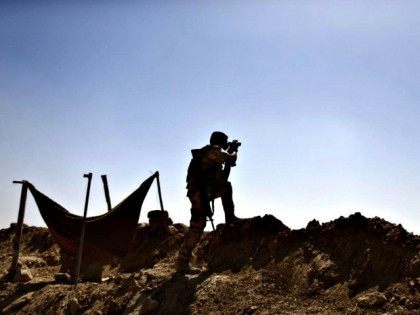
Turkish Prime Minister Ahmet Davutoğlu said Thursday that he believes the October 10 bombing of a peace rally in Ankara was a collaborative attack organized by the Islamic State (ISIS), the Kurdistan Workers’ Party (PKK), and Syrian dictator Bashar al-Assad.
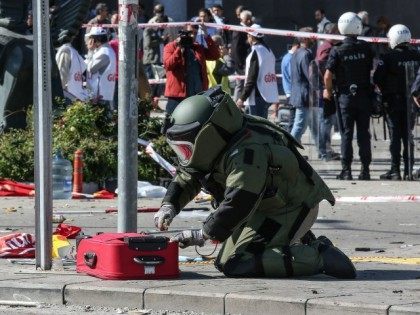
A Turkish court has demanded all media stop covering the investigation into the October 10 bombing of a peace rally in Ankara, the deadliest terrorist attack in post-Ottoman Turkish history.
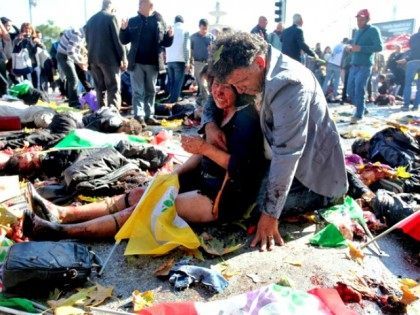
Ömer Çelik, a senior official in the ruling Justice and Development Party (AKP) of Prime Minister Recep Tayyip Erdogan, warned Wednesday that “Kurdish militia in northern Syria appeared intent on creating a de facto zone of control in the region.”
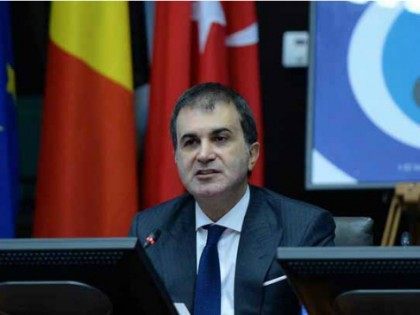
Turkish media is reporting the first arrests directly in relation to Saturday’s twin bombings in the capital, Ankara: two suspected members of the Kurdistan Workers’ Party (PKK) who tweeted about the event before it occurred.

An American-backed Syrian Kurdish militia has joined forces with some Arab rebels and members of an Assyrian Christian group to launch an assault against the Islamic State (ISIS/ISIL) in Raqqa, the jihadist group’s de-facto capital in Syria, according to a statement obtained by Reuters.

Turkey’s prime minister suspects Islamic State (ISIS/ISIL) jihadists carried out the deadly bombings at peace rally in the Turkish capital of Ankara over the weekend that killed nearly 100 people and injured another 250.
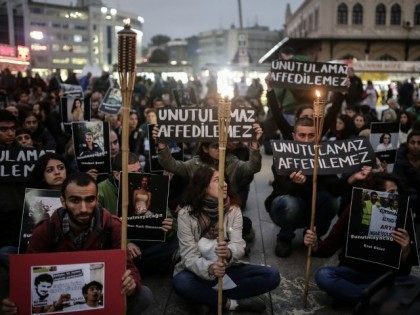
Two massive bombs exploded almost simultaneously Saturday in Turkey’s capital city of Ankara, killing at least 97 people and wounding hundreds more in the process, resulting in the deadliest terror attack in the history of post-Ottoman Turkey.

ANKARA, Oct 10 (Reuters) – Twin explosions outside the main train station in the Turkish capital Ankara killed at least 20 people on Saturday as hundreds gathered for a peace rally, in what government officials described as a terrorist attack.
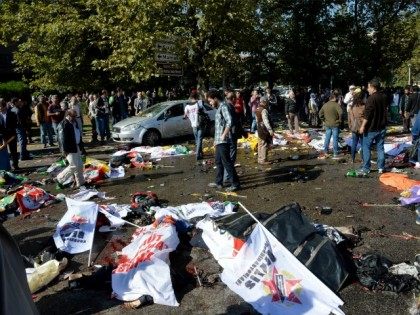
Russia’s military excursion into Syria has driven estranged partners Turkey and the European Union to try to make amends, further isolating the Syrian Kurds, reports Rudaw, citing analysts.
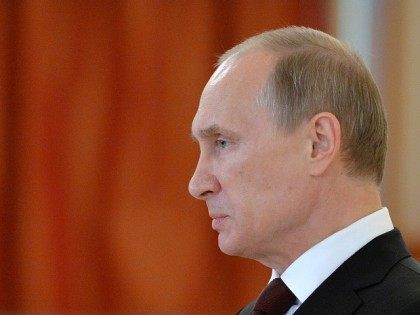
Residents in Şırnak, Turkey, are expressing outrage after a video and images surfaced on the Internet, showing Turkish soldiers dragging a Kurdish man through their streets.
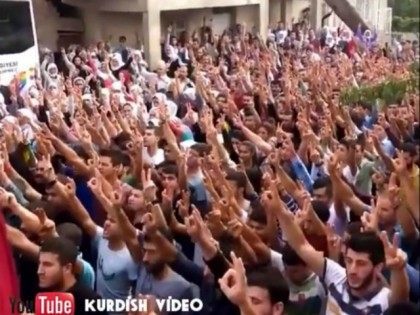
Kurdish leader Saleh Muslim argued this week that the overthrow of Bashar Assad’s brutal regime in Syria would be a disaster for the entire world.
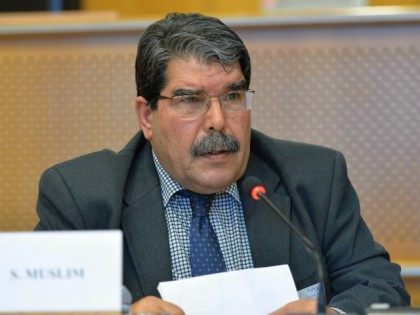
Contents: Suspicions grow that PKK doing Russia’s bidding in bombing Turkey’s pipelines; Report: Repeated failures in Afghanistan reconstruction projects; Japan’s economy returns to deflation

In a sign of events that continue to unfold across Europe, Turks and Kurds have taken to the streets of Sweden to fight one another, with makeshift explosive devices, and an outpouring of physical violence. The site of the events being
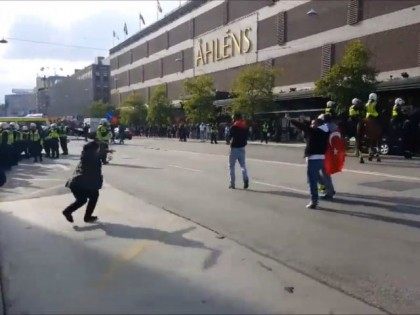
Turkish authorities are now targeting Doğan Media Group for “terrorist propaganda,” only days after mobs attacked the offices of Doğan-owned Hürriyet Daily News.
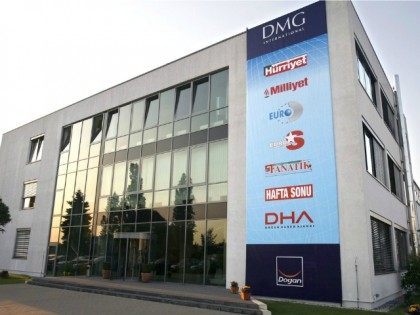
Hundreds of attacks by Turkish nationalist mobs on Kurdish-friendly parties, Kurdish businesses, and even knowing Kurdish individuals in the wake of the nation’s struggle against the Marxist Kurdistan Workers’ Party (PKK) terror group threaten the peaceful coexistence of Turks and Kurds, leaders warn.
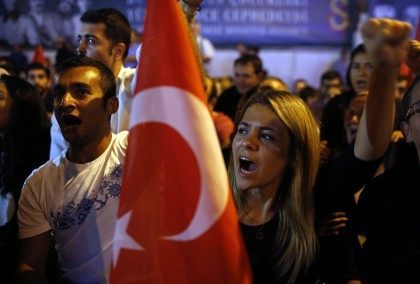
During a week in which the Turkish newspaper Hurriyet has fought off three violent mobs at two of its headquarters, a rival columnist supportive of Islamist President Recep Tayyip Erdoğan has threatened the life of Hurriyet writer Ahmet Hakan, noting that the AKP has “been merciful today and you are still alive,” but that can always change.
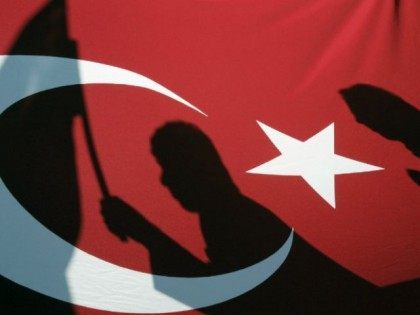
Turkey has sent ground forces into Iraq to chase down Kurdish militants for the first time since a ceasefire deal was reached more than two years ago.
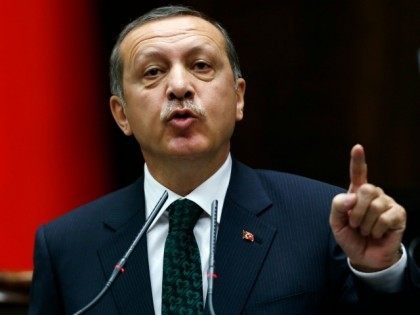
Turkey’s Hurriyet newspaper has suffered a second, bolder attack on headquarters in both Istanbul and Ankara, following an attack earlier this week in which Islamists broke office doors with stones and sticks, while yelling, “Allahu akbar.”
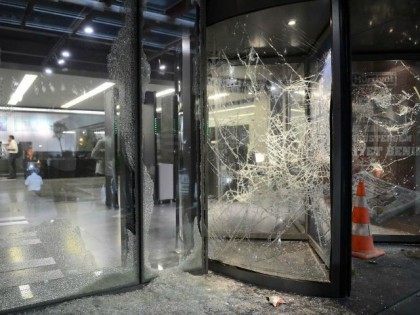
Contents: Egypt’s army starts ‘The Martyr’s Right’ operation in North Sinai; Turkey’s troops enter northern Iraq to hunt PKK after terror attacks; Violence spreads in cities across Turkey; Pro-government mobs in Turkey storm Hurriyet offices for alleged Erdogan misquote; Turkey appears to be approaching civil war.
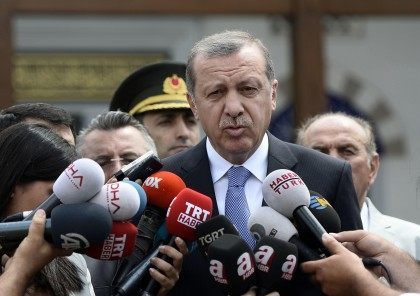
No sooner did the Turkish government release two British reporters for Vice News, arrested while covering clashes between police and the militant youth wing of the Kurdish PKK party, than they arrested a Dutch reporter working in the Kurdish region of Turkey.
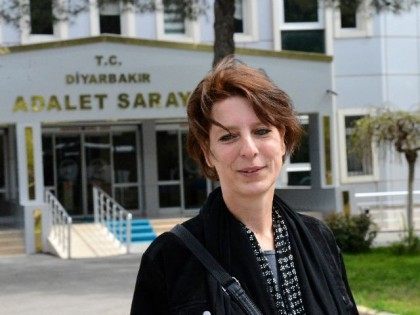
Turkish authorities arrested Dutch journalist Fréderike Geerdink for the second time this year, allegedly to shield her from the dangers of covering Kurdish-Turkish tensions. Geerdink specializes in Kurdish relations, human rights, and women’s rights.

The Kurdistan Workers’ Party (PKK), a Marxist terror group, has claimed 31 Turkish soldiers were killed in the latest clashes with national authorities, a death toll Turkey denies. Violence continues unabated in PKK-controlled areas, as Turkey’s government vows to eradicate the Kurdish group.
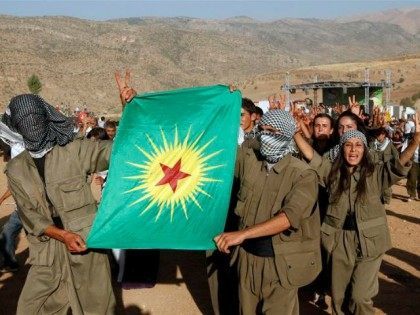
Last Thursday, Turkish authorities arrested two British journalists working for VICE News, Jake Hanrahan and Philip Pendlebury, along with their assistant Mohammed Ismael Rasool, an Iraqi based in Turkey, and a driver who was working for them at the time of their arrest.
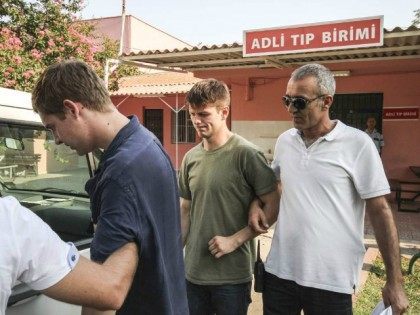
Turkish state media is confirming that three Vice News journalists, arrested on “terrorism” charges in the Middle Eastern nation, had ties to the Kurdistan Workers’ Party (PKK), possessing footage of members of the group making molotov cocktails while being interviewed. Turkey has moved the journalists to a facility five hours away from their legal representation.

An ISIS “web portal” has released a statement in response to Turkey announcing its first airstrikes against the terrorist group alongside the American government, calling Islamist President Recep Tayyip Erdogan an “infidel” and threatening retribution for Turkey’s “crimes” against them.
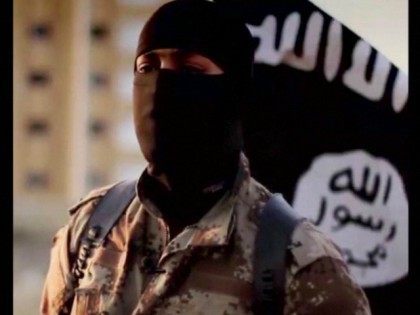
Two British journalists arrested in Turkey for covering the conflict between the national government and the Marxist Kurdistan Workers’ Party (PKK) terror group may not have had any ties to the Islamic State (ISIS/ISIL/IS), reports indicate, but did have sources within the PKK.

A plethora of NGOs and civil society groups have demanded that Turkey release two British journalists, along with their driver and translator, who were imprisoned on Thursday for “engaging in acts on behalf of the Islamic State of Iraq and the Levant” (ISIS).
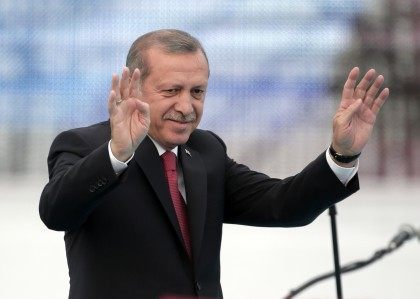
The Turkish government quickly denied a report that stated authorities provided information to al-Qaeda group Nusra Front about U.S.-trained Syrian fighters. The al-Qaeda members kidnapped the fighters as soon as they crossed into Syria.
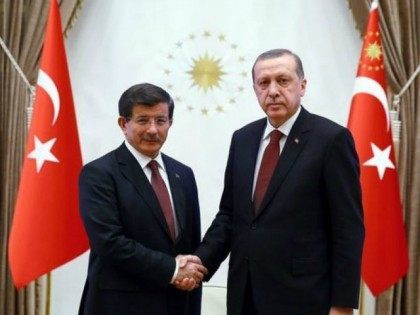
Turkish Foreign Minister Mevlüt Çavuşoğlu told Reuters the government and the U.S. agreed on a “comprehensive” air operations against the Islamic State (ISIS/ISIL) on the border of Syria. However, U.S. officials denied any agreement took place.
